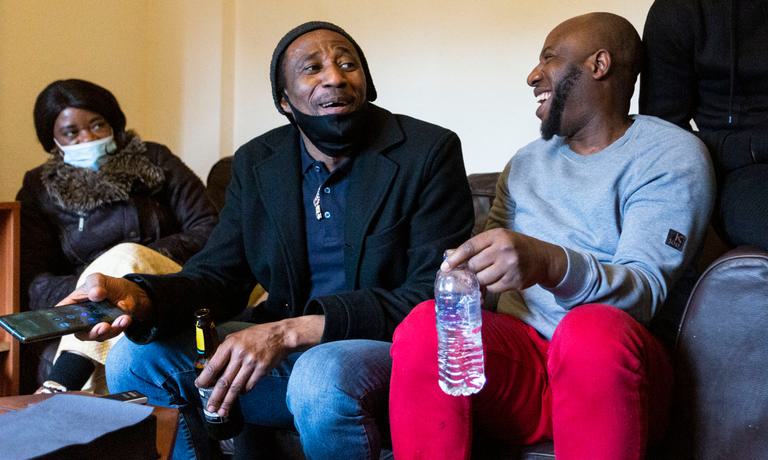People in most minority ethnic groups who live in low income households have the worst health prospects in Great Britain. Although this varies across different ethnic groups, the overall picture shows that many people from communities experiencing racial inequity and living in neighbourhoods experiencing disadvantage have a lower life expectancy and a higher likelihood of developing a long-term health condition than UK averages.
Most of this health inequality is caused by social and economic factors such as jobs and income, housing conditions and your local environment. Minority ethnic people in Britain have higher odds of living in areas experiencing disadvantage, and are more likely to experience unemployment and low pay. For example, young Black British people are most likely to be unemployed and Bangladeshi people are the most likely to live in overcrowded households.
Research by Kings College London and UCL has shown that racial harassment and discrimination both contribute to ill health, Structural racism can lead to people to be excluded from participating fully in their own neighbourhoods or workplaces.
These issues add up over the course of a lifetime, meaning that ethnic inequalities in health get worse the older you get. In older age groups, social isolation also becomes a problem that has a serious impact on health.
COVID-19 made these health inequalities very visible, with the number of deaths among minority ethnic communities hitting the headlines. One factor was that health messages were not sensitive to different cultures, so people were missing out on key information, but none of the reasons were new. As we have seen, they are systemic – and these statistics are a stark reminder of the reality of exclusion.

Stating the facts
- In 2020, black people in the UK were more than four times more likely to die from COVID-19 than white people.
- People who report racial discrimination in the UK have a 78% higher likelihood of a limiting longstanding physical or mental health condition, than those who have not reported racial discrimination.
- People with a learning disability who are from an ethnic minority have a life expectancy of only 34 years, just over half the life expectancy of white counterparts, at 62 years of age.
Our work with communities experiencing racial inequity and health
Many of our funded partners are led by and working with people from communities experiencing racial inequity to improve health in various ways. This could be helping people to improve employability through education and skills, tackling local issues such as housing, or growing social connections for groups such as refugee women, or working in specific neighbourhood such as Lozells in Birmingham, which has a high population of people from South Asian backgrounds and migrant residents. We also fund groups tackling distinct injustices, such as the African Caribbean community in Sunderland.
When you experience discrimination in your job search and are out of work it has a negative impact on your mental health. We help people rebuild their confidence and take this positivity into job interviews
Lucky Pemu
African Caribbean Community Association, Sunderland


Sunderland and South Tyneside Centre For People Of African Heritage
Regular and culturally appropriate meetings and activities for black people from diverse backgrounds in Sunderland and South Tyneside. The meetings are held at a fully accessible venue and provide a range of activities including employment support.
The research on minority ethnic communities and health
Rising inequalities amongst Black and minoritised ethnic communities: Falling Faster amidst a Cost-of-Living Crisis: Poverty, Inequality and Ethnicity in the UK
Racial Discrimination and Health: a prospective study of ethnic Minorities in the United Kingdom
Perceived discrimination and self-reported health in Europe
Understanding how discrimination can affect health, Experiences of Discrimination in America: Race, Ethnicity, Gender, and Sexuality Vol.54 Issue S2 p1374-1388 (December 2019)
We deserve better: Ethnic minorities with a learning disability and access to healthcare, Report commissioned by the NHS Race and Health Observatory, 2023.
